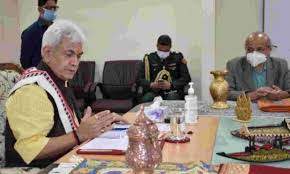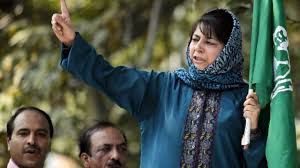World
Pakistan wants to involve Islamic group on Kashmir, criticises SAARC ‘regional domination’

By Arul Louis
United Nations: Pakistan launched a thinly veiled criticism of India over the functioning of SAARC as it tried to involve the Organisation of Islamic Conference (OIC) in the Kashmir dispute at a meeting of the Security Council Tuesday.
Islamabad’s Permanent Representative Maleeha Lodhi told the Council that the OIC “collectively, and in cooperation with the UN” can address the Kashmir dispute, which she bracketed with the Palestine and other Middle East problems.
“The UN should actively promote cooperation with the OIC in areas such as: mediation and conciliation of disputes; peacekeeping and peace building,” Lodhi said.
“Its members are involved-directly or indirectly-in the numerous security challenges, which bedevil the Middle East, Africa and beyond,” she said. “Collectively, and in cooperation with the UN, it has the capabilities to address and overcome these challenges-including Palestine and other Middle East conflicts as well as the Jammu and Kashmir dispute.”
India has ruled out a role for any third party in the Kashmir dispute and points to the 1972 Simla Agreement signed by Prime Ministers Indira Gandhi of India and Zulfikar Ali Bhutto of Pakistan which says the dispute is to the handled bilaterally.
Speaking at the Council session earlier in the day, India’s Acting Permanent Representative Bhagwant S. Bishnoi ruled out any role for organisations like the OIC under the UN Charter.
He did not name the OIC, but warned against extending to organisations based on religion, language or history the role that the UN Charter envisages for regional organisations because the criterion was based on geography. “Any overly liberal interpretation of terminology would be violative of the Charter besides also being counter productive,” he said.
On the South Asian Association for Regional Cooperation (SAARC), Lodhi asserted that it had not been able to reach its potential because of what she said were attempts at “regional domination.” She did not mention India by name, but in the context and with Pakistan’s history of interaction with SAARC the barb was directed at India
Lodhi compared SAARC to organisations like the European Union, African Union, Arab League, and the Gulf Cooperation Council (GCC), which, she said “have proved their worth and made valuable contributions.”
On the other hand, SAARC “much potential but have yet to fulfill that promise,” she said. “SAARC has been constrained because of the deep differences among its members and attempts to utilize it for regional domination.”
Pakistan has rejected proposals for road, rail and energy connectivity across SAARC, and India has being pursuing these links with other members. Recently India, Bangladesh, Bhutan and Nepal signed agreement on motor transport.-all crucial prerequisites for an economically integrated South Asia.
In what is seen as criticism directed against Islamabad, Prime Minister Narendra Modi said during his visit to the United Arab Emirates that “some people” had problems with SAARC interconnectivity,
“Should we stop because some people had problem,” he asked. “Let them stay where they are. We are moving ahead. India, Nepal, Bhutan and Bangladesh have signed a pact for building connectivity.It is a major decision which will have implication in the long run.”
World
Lockdowns in China Force Urban Communities to Defy Censorship and Vent Frustration Online

Shanghai’s rich middle class is leading a wave of online dissent over the strict and prolonged lockdowns imposed in various parts of the country. Chinese internet censorship is struggling as patience is wearing thin in many urban centers, coming up with creative forms of online protests.
Social Media Posts Revealing Lockdown Tension in Shanghai
Drawn-out lockdowns are nothing new in China as authorities insist with the nation’s zero-Covid policy since the start of the pandemic. Currently over This time around, however, metropolitan areas like Shanghai are increasingly difficult to keep quiet, given that its more than 25 million residents have seen weeks of total isolation along with food shortages and many other service interruptions.
Dozens of towns and reportedly over 300 million Chinese citizens have been affected by lockdowns of different severity. As expected, urban netizens have been most outspoken over their difficulties by finding creative ways to get around state censorship and bans placed on topics, news comments and spontaneous campaigns.
Shanghai residents have been using mobile proxies and hijacking seemingly unrelated hashtags to talk about healthcare issues, delivery failures and the overall severity of their situation. The “positive energy” that the Chinese government wants to transmit during the recent prolonged series of lockdowns does not come naturally to those counting food supplies and online censors are working hard to filter words, trending topics and undesired social media sharing.
WeChat groups and message threads are under constant monitoring. Posts questioning the zero-Covid approach have been quickly deleted, including by leading Chinese health experts like Dr. Zhong Nanshan. Video footage is soon censored and protests and investigations are quickly made to disappear.
Where this has not worked, officials have exposed banners with warnings and outright threats like “watch your own mouth or face punishment”, while drones have been patrolling the city skies. Yet, if anything, this has led to further tensions and unspoken confrontation with Shanghai’s educated and affluent middle class.
Creative Online Solutions Harnessing Civic Energy
Announcements by Chinese social media that they would be publishing the IP addresses of users who “spread rumors” have not helped either. Tech industry research has shown that much of Asia’s tech-savvy population has a habit of using mobile proxies and other privacy tools, quickly finding workarounds to browse the internet freely and talk to the world about the hottest topics.
The sheer volume of forbidden posts is already a challenge for the very censorship system, experts explain. Unable to track all trending hashtags, state workers overlook topics that speak about the US, Ukraine or other popular news. Linking human rights elsewhere to their situation, Chinese online dissidents establish their informal channels and “hijack” the conversation to share personal or publicly relevant information about the Covid suppression in their town.
Sarcastic and satirical posts still dominate. Others hope to evade the censors by replacing words from famous poems or the national anthem. One thing is certain – social media, when harnessed with the right creativity, has proven its ability to mount pressure on the government in even some of the most strictly controlled tech environments like China.





















